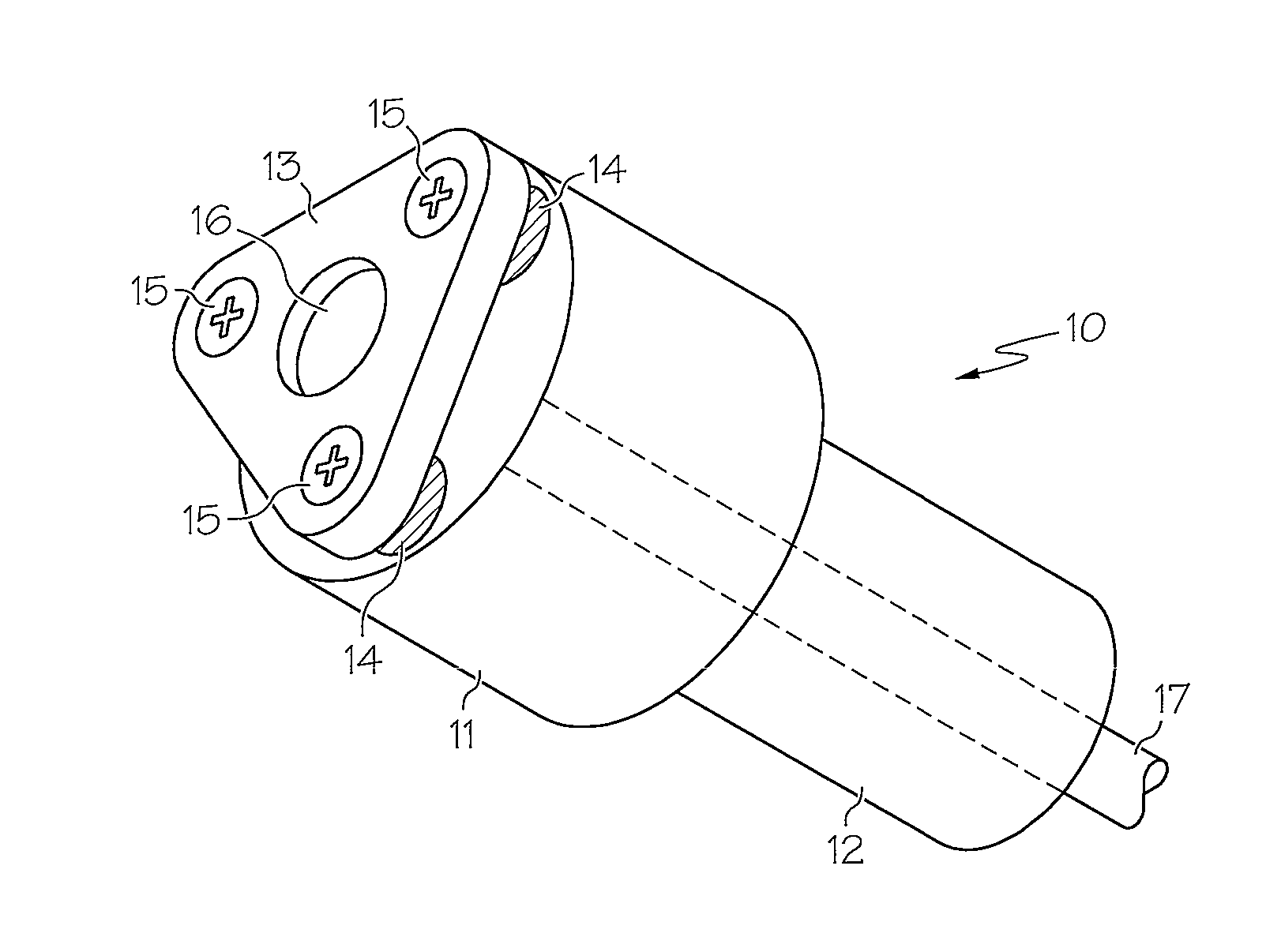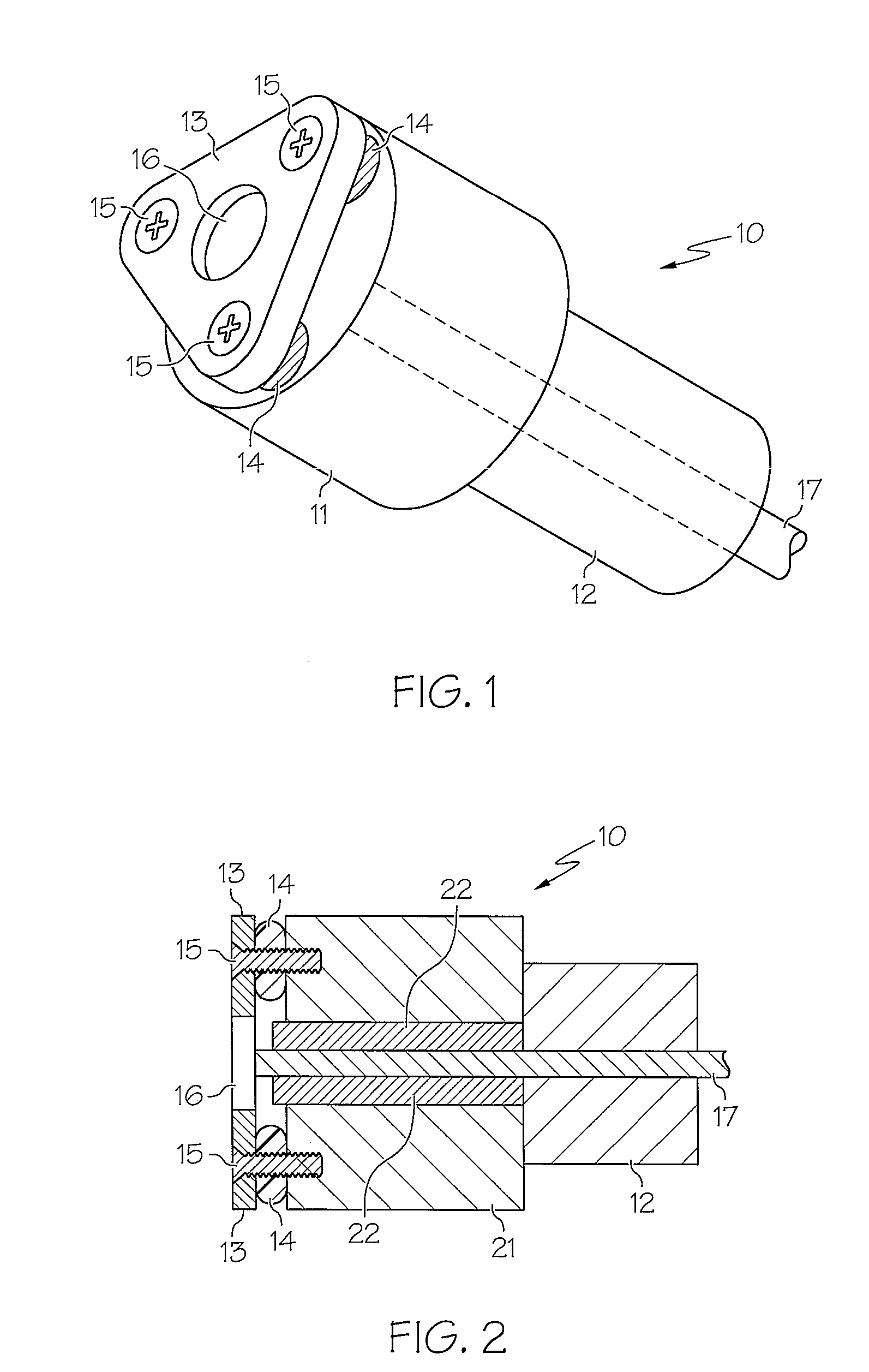Fiber-Optic Connector
a fiber-optic connector and fiber-optic technology, applied in the field of optical connectors, can solve the problems of increased optical fiber connection loss, unsuitable method, undesirable contamination, etc., and achieve the effect of reducing the loss of fresnel reflection of the fiber-optic connector
- Summary
- Abstract
- Description
- Claims
- Application Information
AI Technical Summary
Benefits of technology
Problems solved by technology
Method used
Image
Examples
Embodiment Construction
[0015]Referring now to the drawings and in particular to FIG. 1, there is illustrated an isometric view of a fiber-optic connector, in accordance with a preferred embodiment of the present invention. As shown, a fiber-optic connector 10 includes a ferrule 11 and a housing 12. In addition, fiber-optic connector 10 also includes a top plate 13 and multiple O-rings 14. Ferrule 11 is a cylindrical member with a center hole for receiving an optical fiber. Top plate 13 and O-rings 14 are preferably secured to a front end of ferrule 11 via multiple screws 15. Housing 12 is connected to a back end of ferrule 11.
[0016]O-rings 14 act as shock absorbers between top plate 13 and ferrule 11. O-rings 14 can be substituted by RTV silicone gaskets or springs. Although top plate 13 is shown to be in a triangular shape having three screw holes at each apex of the triangle, it is understood by those skilled in the art that top plate 13 can be of any shape with any number of screw holes.
[0017]For the p...
PUM
 Login to View More
Login to View More Abstract
Description
Claims
Application Information
 Login to View More
Login to View More - R&D
- Intellectual Property
- Life Sciences
- Materials
- Tech Scout
- Unparalleled Data Quality
- Higher Quality Content
- 60% Fewer Hallucinations
Browse by: Latest US Patents, China's latest patents, Technical Efficacy Thesaurus, Application Domain, Technology Topic, Popular Technical Reports.
© 2025 PatSnap. All rights reserved.Legal|Privacy policy|Modern Slavery Act Transparency Statement|Sitemap|About US| Contact US: help@patsnap.com


